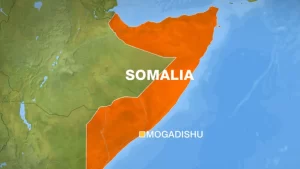 Somalia has been plagued by decades of turmoil and instability due to the failure of its elites to lead effectively. This failure is largely attributed to the pervasive greed and selfishness among Somali elite and politicians. Instead of focusing on developing their leadership skills and being socially responsible individuals, many of these elites are solely interested in accumulating wealth and seeking power for themselves. This egotistical behavior has further exacerbated the already fragile social and political situation in the country that many qualify as a fail state.
Somalia has been plagued by decades of turmoil and instability due to the failure of its elites to lead effectively. This failure is largely attributed to the pervasive greed and selfishness among Somali elite and politicians. Instead of focusing on developing their leadership skills and being socially responsible individuals, many of these elites are solely interested in accumulating wealth and seeking power for themselves. This egotistical behavior has further exacerbated the already fragile social and political situation in the country that many qualify as a fail state.
The detrimental effects of tribalism are also evident in Somali politics. Rather than working for the common good of the country, many politicians use their tribal affiliations to advance their own agendas. This has resulted in 35 years of confusion, backwardness, and disintegration of Somalia, ultimately causing regional authorities to disobey the central government. This lack of unity and cooperation among Somali leaders has only served to weaken the country and make it vulnerable to external threats, jeopardizing its security and independence and even endangering souvereignty and territorial integrity.
Furthermore, the authoritative nature of Somali leaders has hindered progress in resolving conflicts and moving the country forward. Their unwillingness to engage in dialogue, negotiation, and cooperation has only exacerbated existing problems. For example, the issue of rewriting the constitution should have involved input from all stakeholders, but instead, it was pushed forward without consensus, leading to weak institutions unable to resolve conflicts.
The recent claims by Ethiopian leadership over Somali territories and coasts underscore the vulnerability of Somalia to ever permanent foreign ambitions and possible intervention. Comparable disunity and division among Somali Adal Empire leaders have historically been reasons for defeat and disintegration in the the Empire. This ongoing internal strife and external threats highlight the urgent need for Somali leaders to prioritize the well-being of their country and work towards peace, stability, and prosperity for all Somalis.
It is crucial for Somali leaders to reflect on their actions, correct their mistakes, and work towards a better future for their country. Participation in conferences calling for peace and reconciliation, such as the recent one President Hassan Sh. offered in Mogadishu, should be welcomed with honesty and good faith. The outcome of such conferences must yield decisions conducive to peace, prosperity, and the salvaging of a nation on the verge of sinking.
Overall, it is evident that the lack of effective leadership and unity among Somali elites has contributed to the country’s ongoing turmoil and instability. If Somali leaders can prioritize the nation’s well-being, work towards common goals, and engage in constructive dialogue and cooperation, Somalia has the potential to overcome its challenges and achieve lasting peace and stability for its people.
In conclusion, the failure of Somali elites to develop the necessary qualities for effective leadership has resulted in decades of turmoil and instability in the country. Greed, selfishness, tribalism, and dictatorial tendencies have only served to worsen the situation and make Somalia vulnerable to external threats. Somali leaders must set aside their personal interests and work towards a united and prosperous Somalia through cooperation, dialogue, and shared responsibility. Through concerted efforts, Somalia can overcome its challenges and secure a better future for its people.




